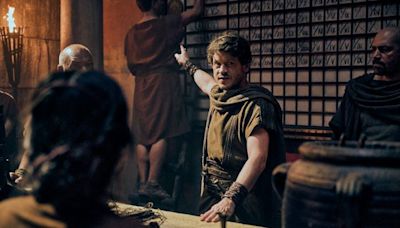Search results
Vespasian was a Roman emperor (ad 69–79) who, though of humble birth, became the founder of the Flavian dynasty after the civil wars that followed Nero’s death in 68. His fiscal reforms and consolidation of the empire generated political stability and a vast Roman building program.
Vespasian ( / vɛˈspeɪʒ ( i) ən, - ziən /; Latin: Vespasianus [wɛspasiˈaːnʊs]; 17 November AD 9 – 23 June 79) was Roman emperor from 69 to 79. The last emperor to reign in the Year of the Four Emperors, he founded the Flavian dynasty, which ruled the Empire for 27 years.
Oct 27, 2012 · Vespasian was Roman emperor from 69 to 79 CE. Vespasian was the last of the four emperors who governed the Roman Empire in the year 69 CE. The previous three had died either by murder or suicide. Unlike Galba, Otho and Vitellius, Vespasian would die of natural causes in 79 CE.
Nov 13, 2023 · Vespasian, born Titus Flavius Vespasianus in 9 AD, emerged as a pivotal figure in Roman history during a time of political turmoil and military strife. His ascent to power marked a crucial turning point in the Roman Empire, bringing stability and prosperity.
Oct 27, 2022 · Vespasian was the founder of the Flavian Dynasty that ruled the Roman Empire for close to three decades. Although much isn’t known about Vespasian’s rule from AD 69 to 79, he was still responsible for restoring and expanding the Empire. He was regarded as a symbol of peace to the Romans.
Reign as emperor of Vespasian. On December 21 Vespasian’s position was officially confirmed by the Senate, but he remained quite frank about the military origin of his rule.
Bust of Vespasian © Vespasian was the ninth emperor of Rome and succeeded in restoring peace and stability after a period of civil war. He founded the Flavian dynasty of emperors.



